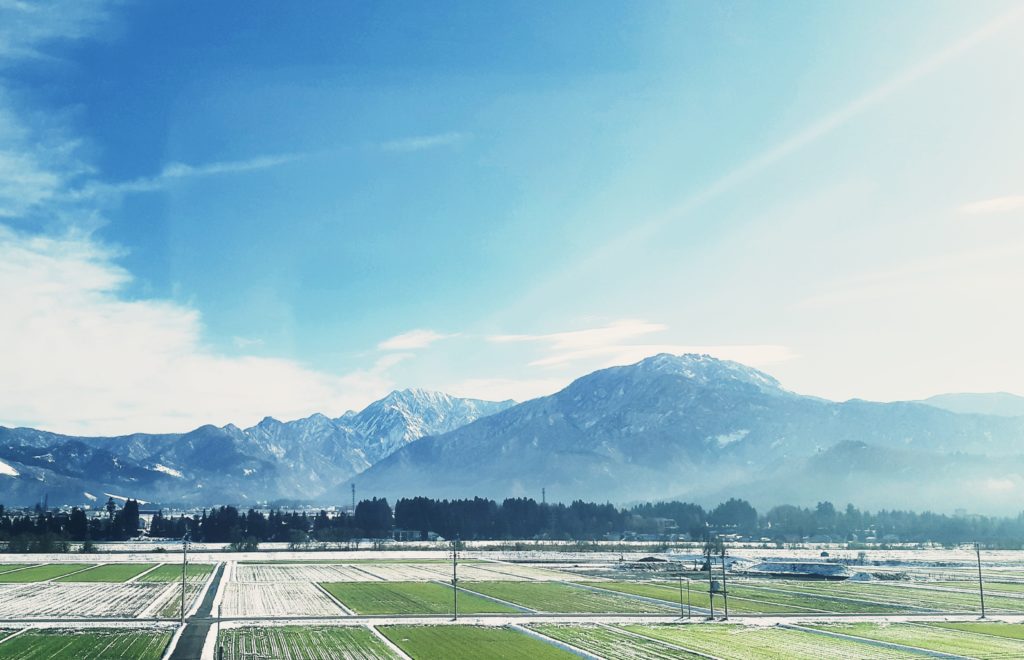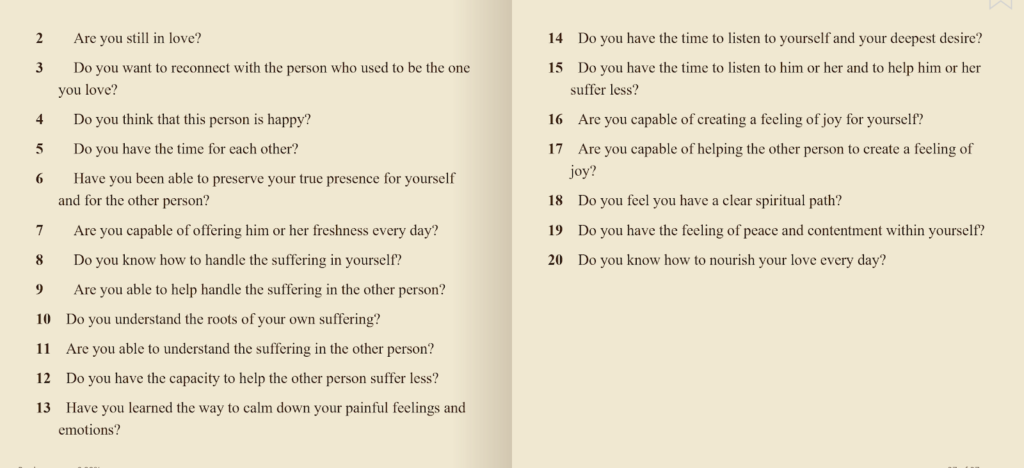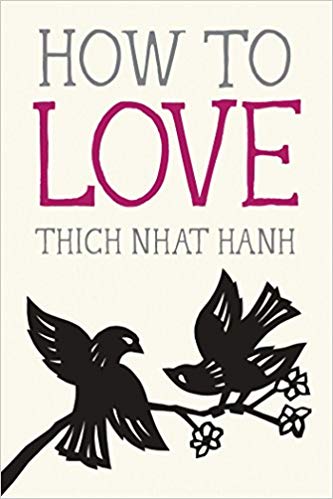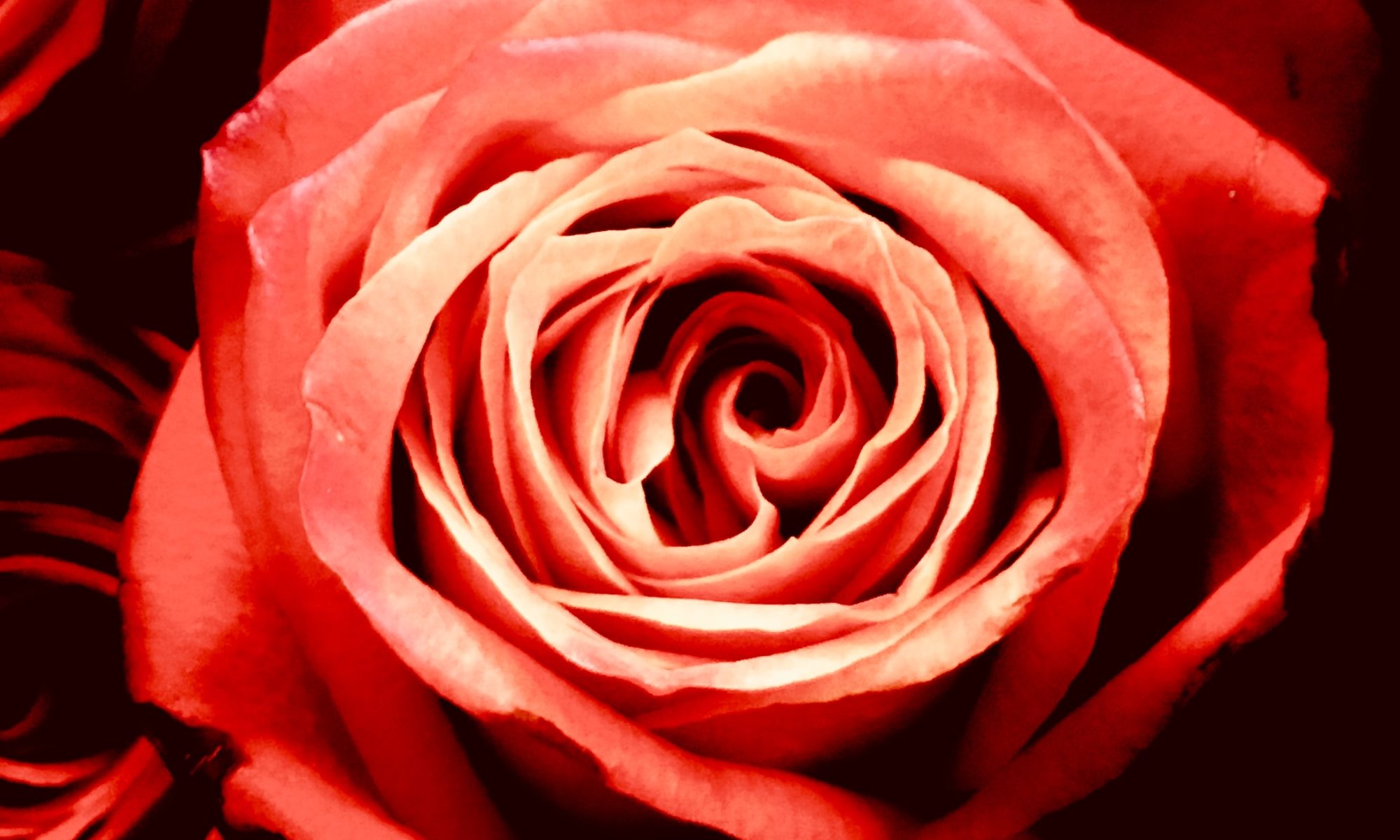
My answer may be found in the Japanese proverb 塵ちりも積つもれば山やまとなる ( chiri mo tsumoreba yama to naru ), translated it means: dust if piled can become a mountain. So what is the question? It is “How do I accept the past to re-fall in love with my Primary (husband) in a way that is deep, sincere, and respectful? That reflective query came to the forefront as I went through 20 Questions for Looking into your Relationship from Thich Nhat Han’s book How to love (2016). First submitted was, “Are you in love?”. I promptly floundered trying to answer that. Well, I love him but “in”? What is held in the “in”.
A Mountain of a problem. My Co-Primary is so easy to love/understand/communicate with (I will need to write a post explaining my choice of terms in my polyamorous-polyfildelity relationship but for now, know that I mean he is my other partner); anyhow, I whizzed down the list when applying the questions to my relationship with him. But applied to my darling Primary, it didn’t get any easier with the following questions:

After a struggle to answer these, my conclusion was that singular question: How do I accept the past to re-fall in love with him in a way that is deep, sincere, and respectful? With a bonus realization, that it is hard to fall “in” love with him because we had a beast of a mountain made of our life-experience obstructing the “in”. I do want to be able to practice abundant love with both of my partners, but in actuality it isn’t even close to being equal.
Dust if piled can become a mountain: The concept behind this proverb is familiar for most- think of it as the material representation of baby steps. Each tiny effort and act accumulates to something bigger. Figuratively, dust can be seen as undesirable, annoying like the feeling of doing a repetitive, painfully mundane action to achieve a goal, or can even turn aggressive and become a tool of destruction. Yet, it can also be the tiny, sweet nothings that eventually add-up to something of worth. Regardless of the emotions and meanings attached to each speck, it is these tiny elements that create the powerful whole that will become “us”.
The Composition of my Mountains. My Primary and I have a mountain created with a lot of undesirable content like each time I have yelled, had a breakdown, been demanding, or didn’t pull my weight, and each time he has fallen asleep in front of the couch, prioritized company over family, or gotten drunk and made me panic if he was going to come home alive. That can be an ugly mountain to live on or want as a view. My Co-Primary and I- we know better; our hill (not yet a mountain) is being informed by half a lifetime. So when selecting what to drop on the pile that is becoming our mountain, sadness, anger, insecurities…all those vices in each are not scrapped but handled with open communication, compassion, and wisdom. We effortlessly seem to be creating a solid, exceptional future that reflects the gifts that we have now.
Learnings: Back to the question “How do I accept the past to re-fall in love with my primary in a way that is deep, sincere, and respectful?” Honestly, I don’t know if I can salvage the mountain we have made, perhaps we need another place to build-up. A foothill of “us”. We can’t deny the painful past but we can create something with a larger ratio of goodness from both of us. From this new vantage point we can embrace each other and learn to look at this beast that holds the expectations, disappointments, anger we have willingly left behind. With acceptance and forgiveness we may be able to learn to live peacefully next to it.

In How to Love, Hanh offers strategies when selecting the the specks and designing our second-pile of experience:
- Choose to grow and care for the goodness we see in each other. Currently, I am myopic towards the negative traits in him that drive me crazy. There are certain things that will likely never change so I may as well stop watering the weeds and give the good-stuff a chance to repopulate our relationship.
- Be a compassionate listener. I fly off the handle with certain triggers. I need to list these triggers to prepare myself for when they present themselves and apply curiosity and listening to unpack it and make them innocuous again. The result is when they do present themselves, they will be harmless guests, a tad annoying but they don’t ruin the party.
- Recognize how I have been complacent and “be a friend to myself”, be a compassionate listener to myself and identify the expectations that I need to let go of and not take with me to our new spot.
- Friends and support are “roots” that will keep our new place solid. Co-Primary is wonderful for this. We have done so well with the mountain we are creating that he enlightens us to what material Primary and I need to rebuild with. Co-Primary happens to always be an advocate of my formal marriage. He understands Primary and has a way of keeping me realistic and grounded during episodes that would have me raging. Further, we can also connect with our mutual community of friends around us. That is easier said than done considering he lives far from me and I only see him for 36 hours every couple of weeks but intentionally blessing our second-place with laughter and love whenever we can is worth a try.
- Take special care of the volitions and thoughts we will include. Also ensure that the new spot is created with beauty that addresses all the sense, and that the environment is transparent and healthy. This means starting today, I will add to our pile by placing in good words and positive conscience. Start with “I love you” and “ I thank-you” to see what natural positive discourse follows.
Polyfidelity is a new experiment for me, but I want to love more and better. Primary deserves so much more love than I am currently giving. I am having trouble providing affection and kindness due to built up anger, disappointment and resentment. On the other hand, I love almost everything about mine and Co-Primary’s relationship…he has resurrected me and has allowed me to enjoy love in a way I never have. For me Polyamory equates with abundant love and that is what I ultimately want. For now it is utilitarian because of circumstance of distance, careers, and children; but, there is also an excitement in having no rules. The three of us can curate a life that is special, meaningful and lovingly expansive that bulldozes through social constructs- a range that looms over and shadows everyone’s landscape.
Hanh, T. N. (2016). How to love. Berkely, California: Parallax Pr.
